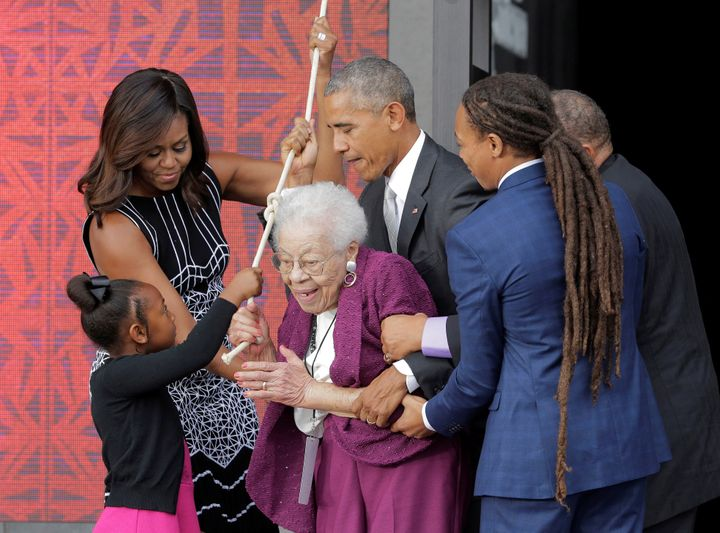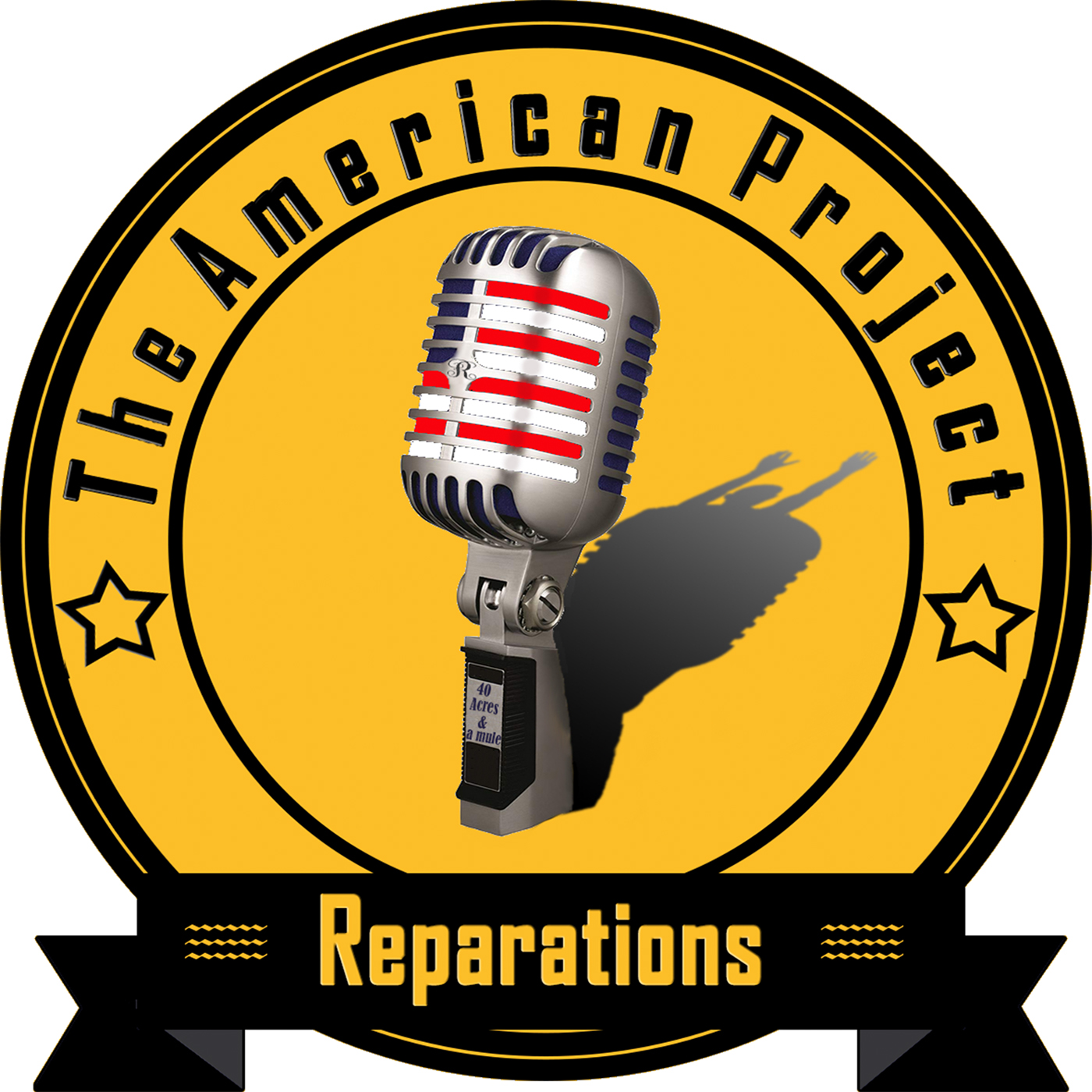
In this first full episode of Season 1, we’ll explore the single most vexing question about reparations: How would a program possibly work? Specifically, how could you determine eligibility for receiving reparations?
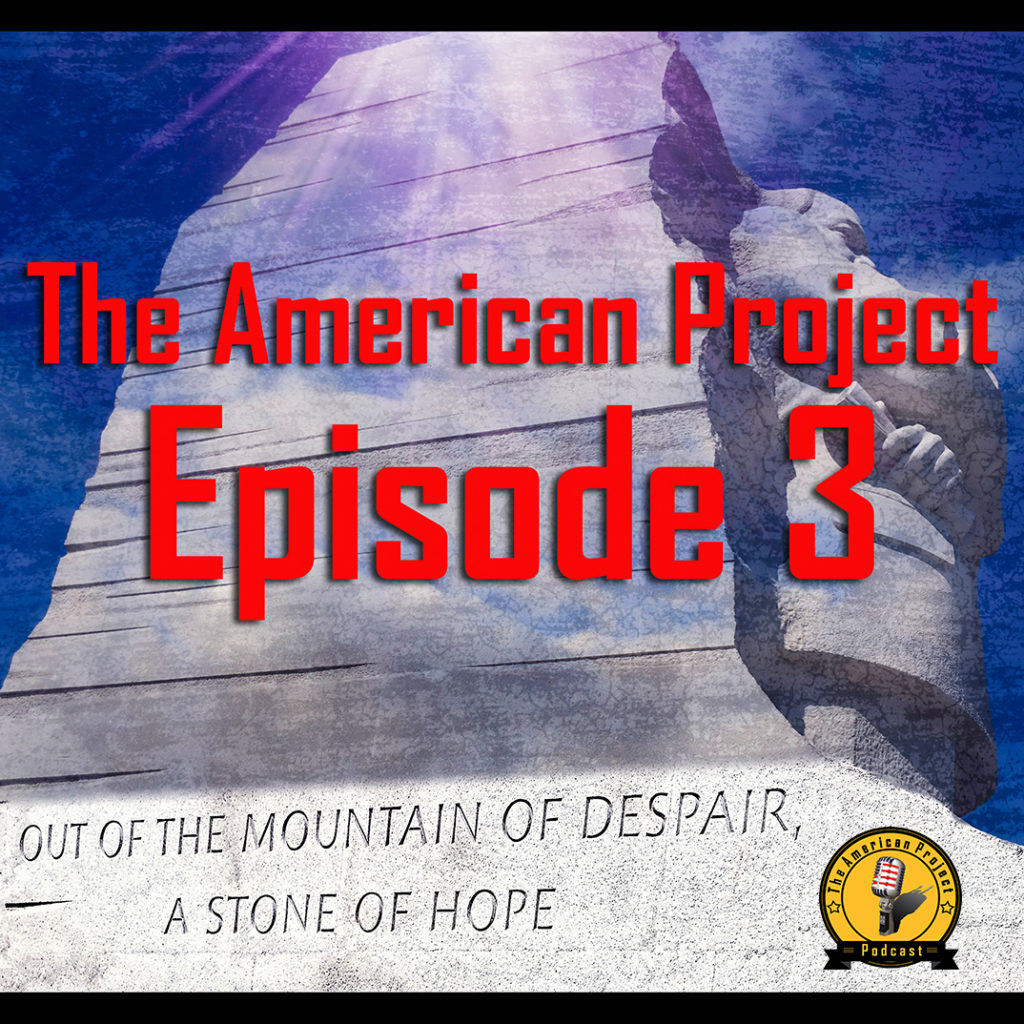
The American Project
Season 1: Reparations for Slavery & its Legacy
Speaker 1 00:07
…But I think the important things to consider are who pays? How much do they pay? And who do they pay it to? These are impossibly difficult questions to actually reconcile…
Speaker 2 00:19
…How would we do this? You know, it’s too complicated. No, it’s not that complicated…
Ben Carson 00:24
…I would say about reparations is, you know, show me a mechanism that works. And I did my DNA…
Kirsten Mullen 00:32
…One of the things that we would like to see is a federal agency that focuses on genealogical research. It might be a very appropriate way to assist black Americans who are tracing their family history to determine whether or not they are in fact eligible.
Henry Louis Gates, Jr. 00:48
Hello. I’m United States Treasury Secretary Henry Louis Gates, Jr. If you like, you could call me “Skip.” What can I help you with today?
Angela Abar 00:58
I need to know who I am.
Barack Obama 01:00
Today, we have with us a family that reflects the arc of our progress. Ruth’s father, Elijah Odom, was born in the servitude in Mississippi. He was born a slave. As a young boy he ran, though, to his freedom…
Osha Davidson 01:47
Hi, I’m Osha Davidson, producer and host of The American Project. Welcome to season one, a deep dive into the issue of reparations for slavery and its legacy. So, okay, here was my plan for this season: I’d begin with the fact that the principle of reparations was already being considered on the eve of our nation’s founding. A few argued – passionately, but unsuccessfully – that an independent United States had to ban slavery to have any legitimacy on the world stage. In fact, the man called the father of the American Revolution was already looking forward to a new country without slavery.
Thomas Paine 02:29
The great question may be: What should be done with those who are already enslaved here? Perhaps some could give them lands upon reasonable rent, so as all may have some property and fruits of their labors. Thomas Paine, March 8, 1775.
Osha Davidson 02:52
I’d move on to the horrors of chattel slavery, then to the civil war and General William Tecumseh Sherman’s Field Order 15, which promised to the newly freed households 40 acres of land. (The mule part came later.) Next, the short glorious period of reconstruction and its violent overthrow, a reign of terror when thousands of Black Americans were murdered. They were killed individually and en masse, as in Tulsa, Oklahoma.

Then Jim Crow laws, neo-slavery, aka, convict leasing.
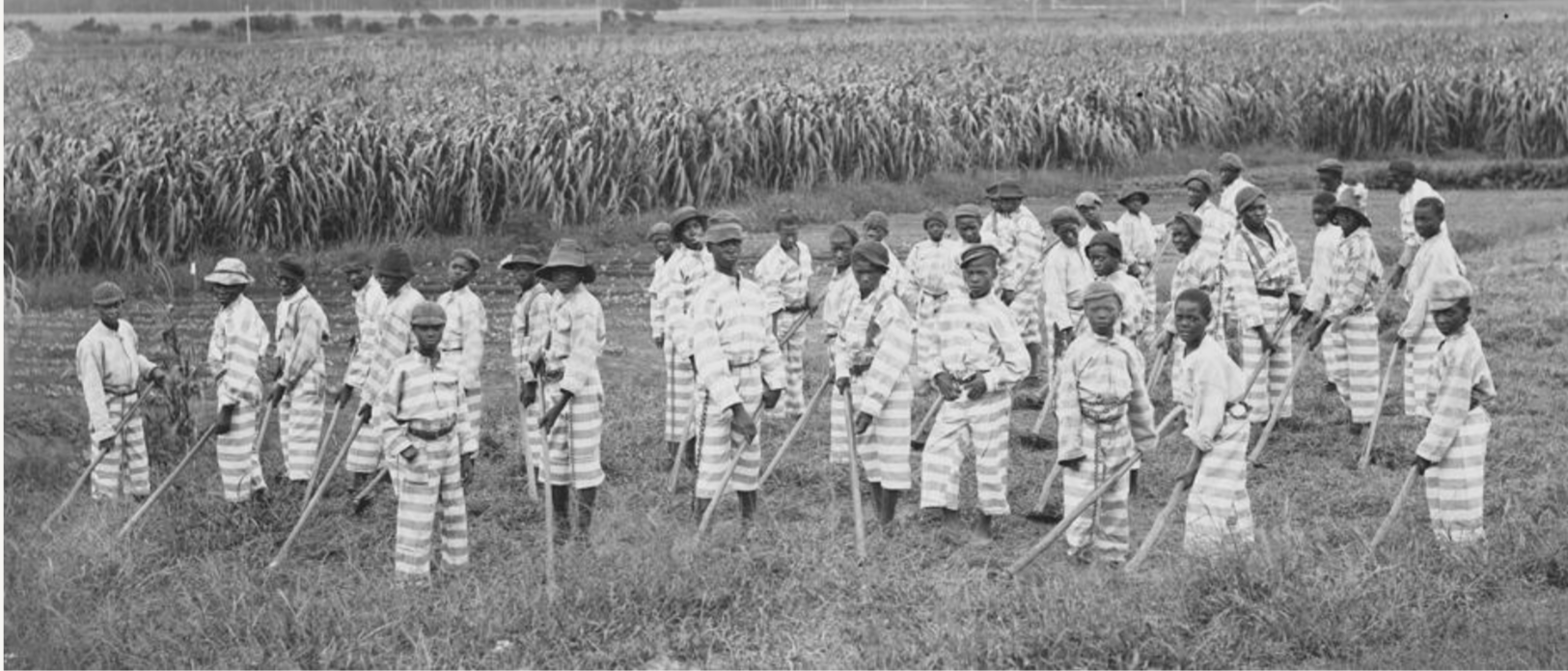
Black orphaned children and juvenile offenders bought as laborers, from 1865-1940s. (Library of Congress)
We’d also look at the long line of crusaders for restorative justice from Callie House in the late 1890s to “Reparations Ray” Jenkins in the 1960s, and up to the current bill before Congress, HR 40, sponsored by the Texas Democrat, Sheila Jackson Lee.
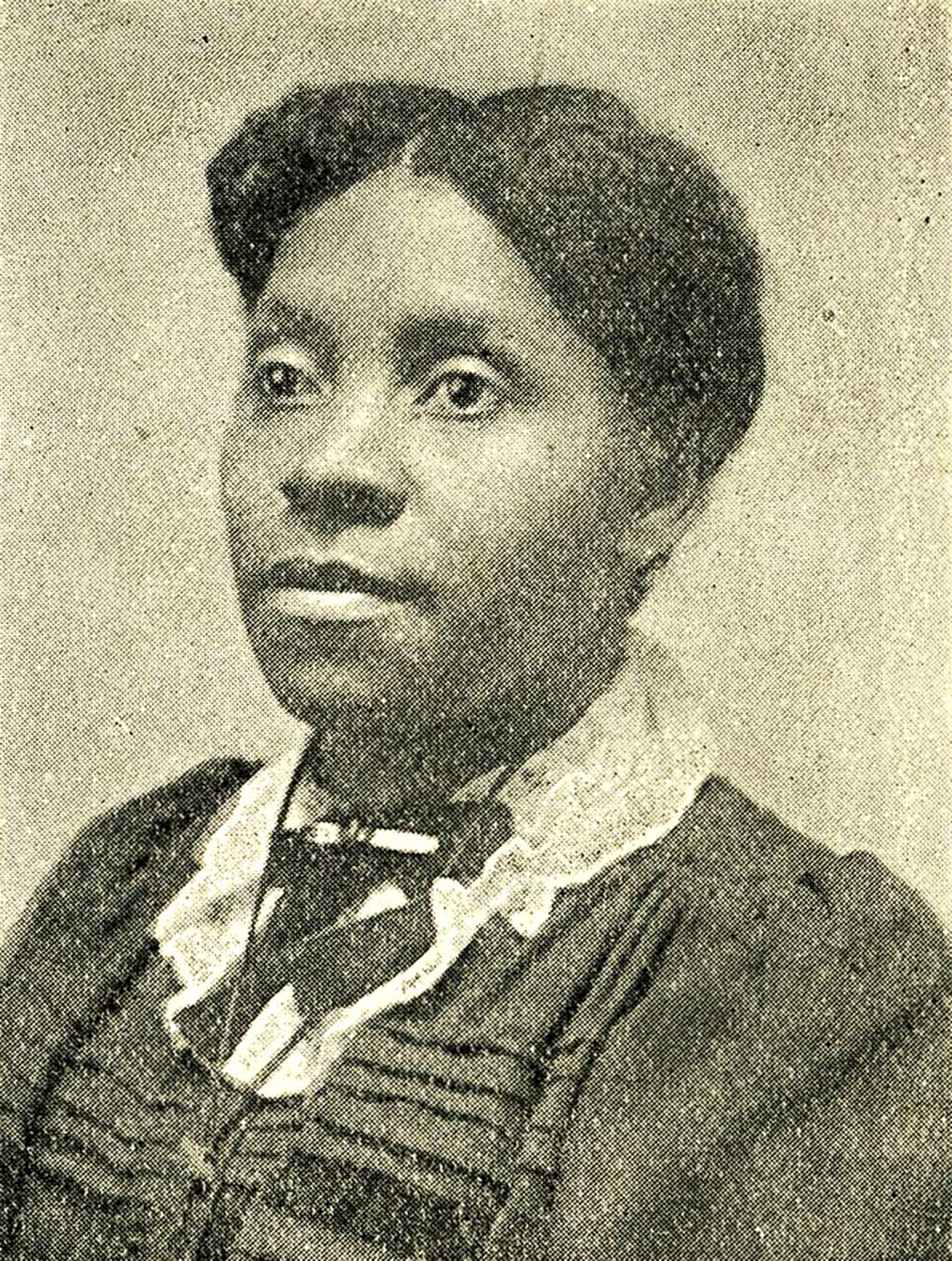
Callie House
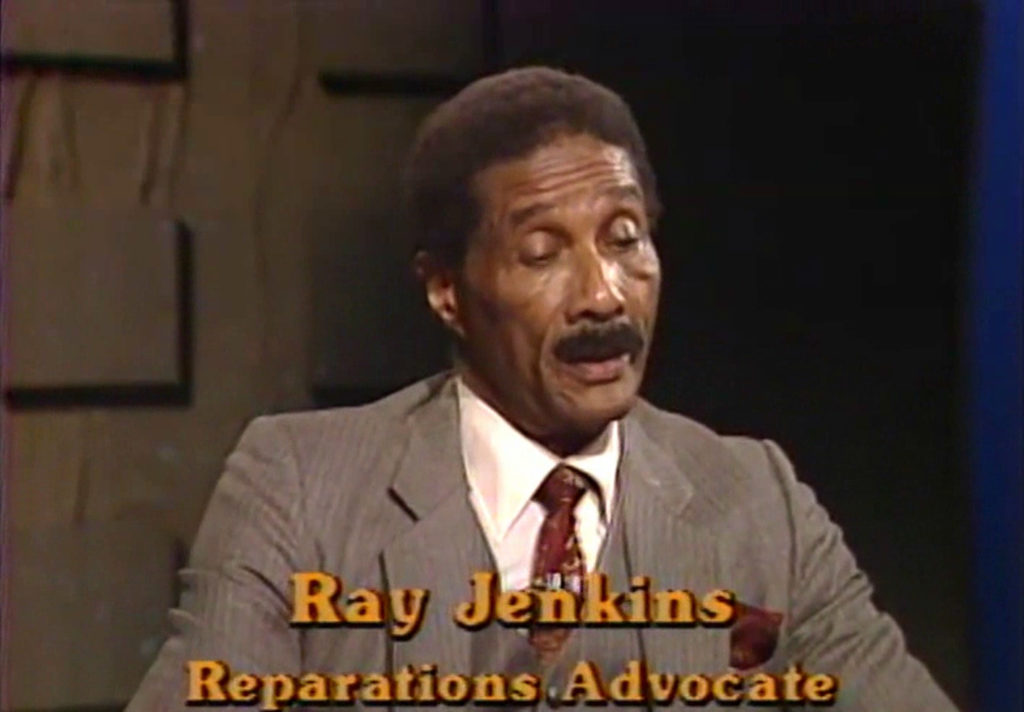
“Reparations” Ray Jenkins
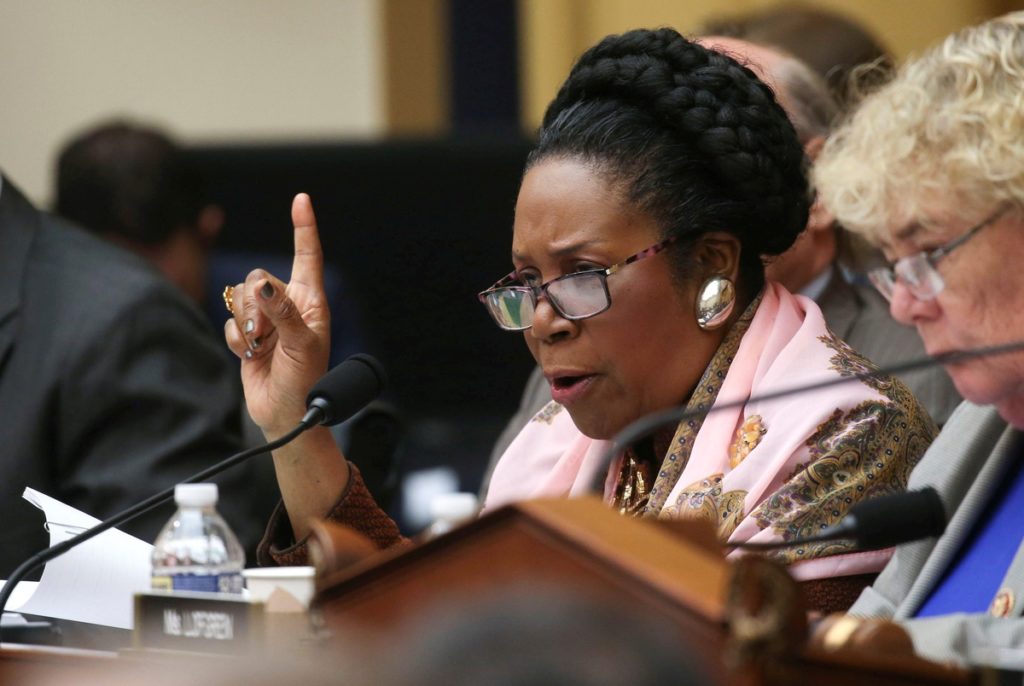
Congresswoman Sheila Jackson Lee
Sheila Jackson Lee 03:47
What we’re simply saying is that this commission will study reparations and the proposals thereof, which is not something that is foreign, if you will, to this nation. We have done so in other groups before and we are going to take this very seriously.
Osha Davidson 04:01
Someone else taking HR 40 seriously: The white mayor of Durham, North Carolina. In a State of the City address last week, Mayor Steve Schewel threw his support behind the bill, and called for mayors across the country to do the same.
Steve Schewel 04:17
That wealth gap, more than $10 trillion nationally, is the most powerful economic indicator of the full effects of racial injustice in the United States. That is why we must advocate for a comprehensive national reparations policy for redress of racial injustice. As an essential first step, we will call on Congress to pass an improved version of House Resolution 40, which would create a federal Study Commission on Reparations. I invite my fellow mayors to join this coalition with Durham. History, history has its eyes on us. Together, we can change the course of our nation.
Osha Davidson 04:55
After HR 40 I was going to wrap up the season with the nuts and bolts segment. You know, the geeky – okay, boring – part. Who would qualify? How much it would cost. Where the money would come from and where it would go. All of this seemed like a reasonable plan to me at first. But, nearly every conversation I had with white people about this project convinced me I was going at it all wrong. As soon as I mentioned reparations, their first question had nothing to do with history, or morality, or the long arc of justice. It was just: “Well, how could that possibly work? It’s too difficult. It just can’t be done.” And it’s not just white people who believe this. Here’s Ben Carson speaking in December 2019.
Ben Carson 05:48
What I would say about reparations is, you know, show me a mechanism that works. And I did my DNA analysis. Okay, I’m 77% Sub-Saharan African, 20% European, 3% Asian. So how do you proportion that out to everybody? You’re not going to be able to figure it out. And where do you stop it? It’s unworkable.
Osha Davidson 06:16
Okay. I know what you’re thinking. Really, Osha? You’re going to cite Ben Carson, a member of President Trump’s cabinet? But it’s not just Black Trumpists who call reparations unworkable.
For example, a young black law professor made the same argument to his students at the University of Chicago in the 1990s, long before Professor Barack Obama became President Obama. One of his law students recalled and I’m quoting here from David Remnick’s 2010 Obama bio, The Bridge.
“He agreed entirely with a theory of reparations but in practice, he didn’t really think it was workable.” They discussed the issue, the student continued. “And after 15 minutes of this as the complexities emerged, who is black? How far back do you go? What about recent immigrants still feeling racism? Did they have a claim? Finally he [Obama] said, ‘That is why it’s unworkable.'”
Osha Davidson
For the record, Obama hadn’t changed his mind when he was running for president in 2008.
Interviewer 07:27
When it comes to reparations, would you take it a step further in terms of apologizing for slavery or offering reparations to various groups?
Barack Obama 07:34
You know, I have said in the past, and I’ll repeat again, that the best reparations we can provide are good schools in the inner city, and jobs for people who are unemployed…
Osha Davidson 07:47
Well, one thing you can say for that argument: it sure has staying power. Here’s a talk show clip from 2015.
Speaker 07:55
I think we’re all here because of a pursuit of justice. But I think the important things to consider are: Who pays? How much do they pay? And who do they pay it to? These are impossibly difficult questions to actually reconcile and answer in a meaningful and just way.
Osha Davidson 08:10
So, I’m gonna start at what was supposed to be the end, looking at the question: Is reparations, an impossibly difficult program to administer? Part one is devoted to the question critics seem to find the most intractable: Who do they pay it to? In other words, how would eligibility for reparations be determined?
Osha Davidson 08:44
For an answer, I turned to a scholar who’s been studying this question for 30 years.
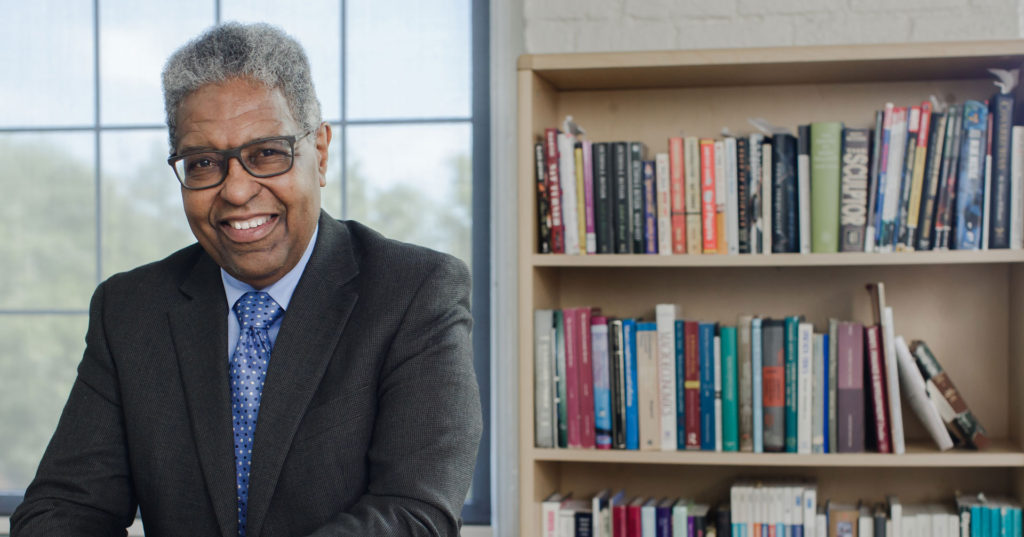
William “Sandy” Darity.
Sandy Darity 08:50
I am William Darity, known better as Sandy. And I am the Samuel DuBois Cook Professor of Public Policy, African and African American Studies and economics at Duke and I also direct the Samuel Dubois Cook Center on Social Equity.
Osha Davidson 09:09
Sandy is also the co-author of a forthcoming book: From Here to Equality: Reparations for Black Americans in the 21st Century. (We’ll have a link to this book and more on our website, www.theamericanproject.us.)
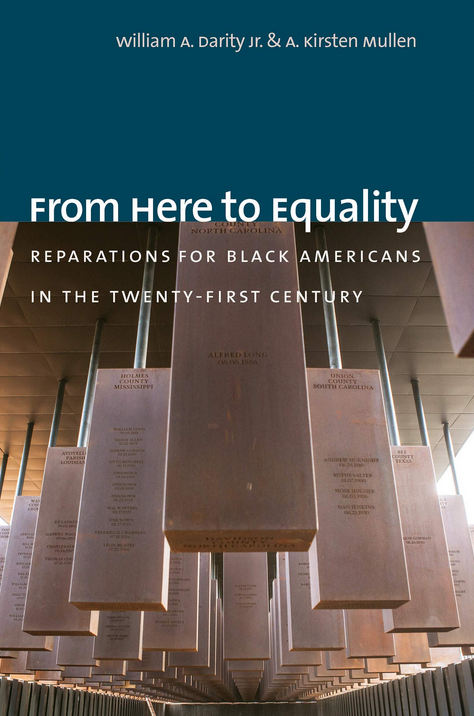
And, because of Sandy’s expertise, he’s also a consultant for this podcast. Sandy has an answer for the question of who’s eligible. Two answers, actually, that are meant to elegantly cut through impossibly complex questions about eligibility. Here he is in 2009.
Sandy Darity 09:42
With respect to who would be eligible to receive reparations, I’ve come to the view that there should be two criteria. The first is that the individual should have to establish that he or she had an ancestor who was enslaved in the United States. And then the second criteria would be that the individual would have to indicate that for at least 10 years before the onset of the reparations program, that in some official document that he or she indicated that they were racially either Black, Colored, Negro, or African American. Okay, so that’s who would be eligible.
Osha Davidson 10:19
And that’s it. Number one, descended from a person enslaved in the United States. And number two, officially self-identifying as Black or the equivalent for at least 10 years.
Not so fast, say the critics. It’s virtually impossible (hey, there’s that word again), to prove lineage all the way back to slavery. But slavery is not exactly ancient history in this country, though most of our textbooks make it seem as if it were. When the National Museum of African American History and Culture was dedicated in the nation’s capitol on September 23, 2016, President Obama and First Lady Michelle had help at the ceremony. Here’s the president speaking on that unseasonably warm Friday.
Barack Obama 11:07
Today, we have with us a family that reflects the arc of our progress, the Bonner family. Four generations in all. Starting with gorgeous seven-year-old Christine and going up to gorgeous 99-year-old Ruth.
Ruth’s father Elijah Odom was born into servitude in Mississippi. He was born a slave. As a young boy he ran, though, to his freedom. He lived through reconstruction, and he lived through Jim Crow…
Osha Davidson 11:49
And when it was time to ring the museum open with the Freedom Bell from a black church founded in 1776, the Obamas had help from Ruth Bonner, the daughter of a man born into slavery.
[Freedom Bell ringing]
Osha Davidson 12:12
The last known person born into slavery probably died in the mid-1960s, which means there are nearly 100 million Americans living today who were alive at the same time formerly enslaved people were. That includes me. Most of the rest of Americans are only one or two generations removed from that terrible period. Kirsten Mullen, co-author of From Here to Equality, explains why tracing lineage isn’t exactly rocket science.
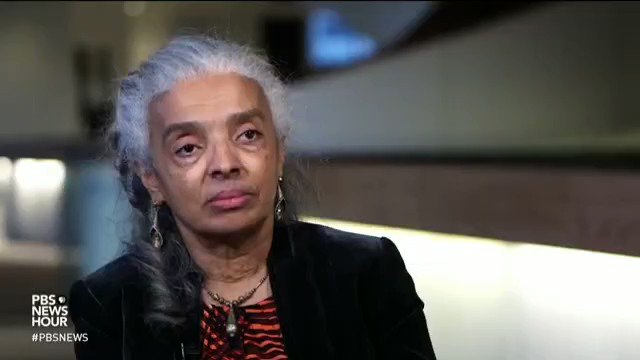
Kirsten Mullen
Kirsten Mullen 12:41
There are already a number of groups that perform this function for a fee. Ancestry.com. The Mormons have a fantastic office set up that will help individuals research their family trees. We’ll be looking at census records depending on your state there may have been slave registries as well, but you simply either work backwards or forwards. You start with the individuals who are living today and then their parents and grandparents and such going back as far as the public records will go. But there’s a thriving enterprise in the U.S., in large part thanks to television programs, “Finding Your Roots,” “Who Do You Think You Are?” Probably since the creation of the Alex Haley’s book, Roots, Black Americans have had even more reason to be conducting this research on their own. So I don’t think it’s a subject that is foreign.
Osha Davidson 13:37
Darity and Mullen also favor a role for the government in this search.
Kirsten Mullen 13:41
So one of the things that we would like to see is a federal agency that focuses on genealogical research, and this might be a very appropriate way to assist Black Americans who are tracing their family histories to determine whether or not they are in fact eligible to be receive reparations when that moment comes.
Osha Davidson 14:06
Okay, let’s get crazy for a moment. How about a federal program administered by the creator and host of “Finding Your Roots,” Henry Louis Gates?. Actually, it’s already happened. Bu,t just in the fictional universe of the HBO hit series “Watchmen.” In the show, descendants of the all-too-real 1921 massacre of hundreds of black residents in Tulsa, Oklahoma, are eligible for reparations. In this scene, a character played by Regina King is searching for her lineage.
Henry Louis Gates, Jr. 14:41
Hello, I’m the United States Treasury Secretary, Henry Louis Gates. If you’d like you could call me “Skip.” What can I help you with today?
Angela Abar 14:52
I need to know who I am.
Henry Louis Gates, Jr. 14:55
I’m sorry. I can’t help you with that. But I can check your eligibility. Would you like me to do that?
Angela Abar 15:00
Yeah. Yes.
Henry Louis Gates, Jr. 15:03
May, I have your consent to test the sample of your DNA?
Angela Abar 15:06
Yes.
Henry Louis Gates, Jr. 15:08
Please take a cotton swab of the drawer, gently rub it on the….
Osha Davidson 15:13
Most real life supporters rule out the use of DNA analysis. Here’s Sandy Darity on that particular can of worms.
Sandy Darity
I do want to re-emphasize that the criteria for eligibility that I mentioned earlier, have nothing to do with DNA tests, or skin shade or phenotype or appearance.
Osha Davidson 15:32
Why not? In part, it’s because of America’s long history of medical racism.
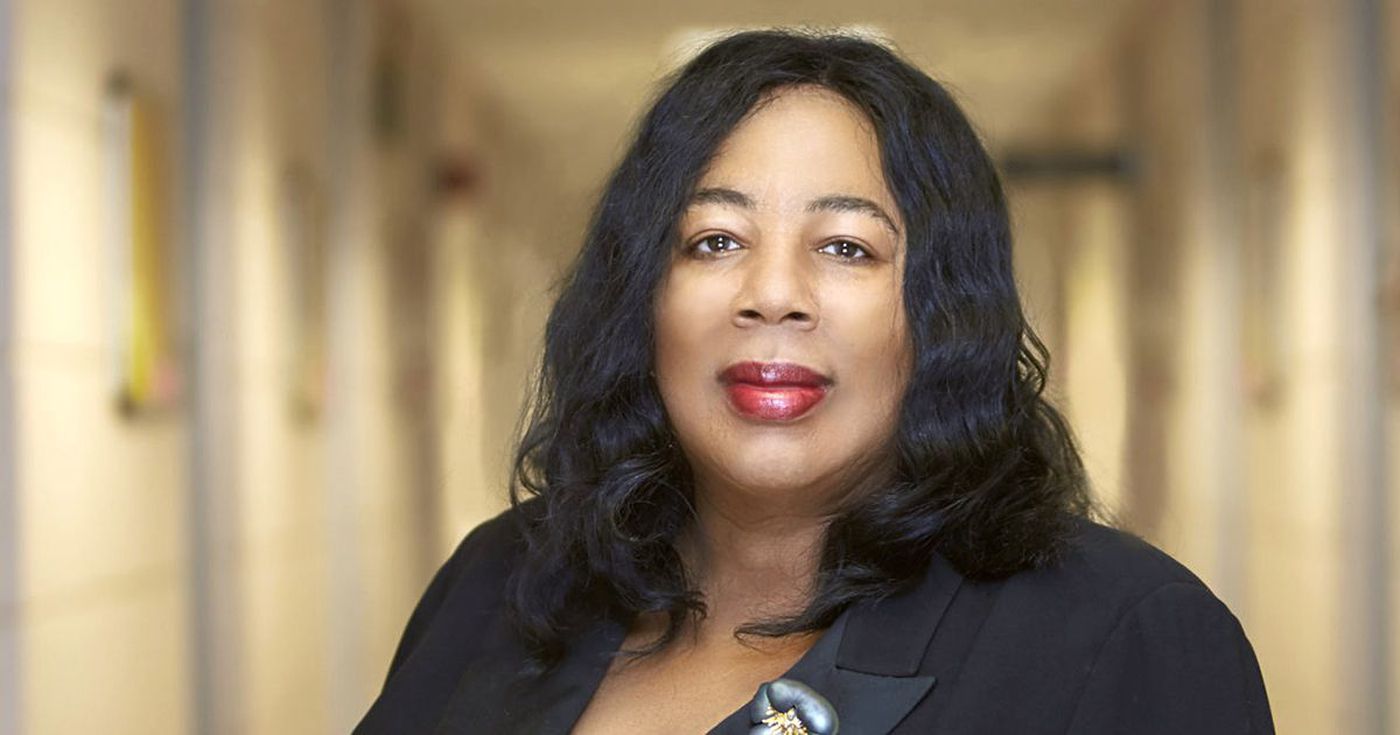
Harriet Washington
Harriet Washington 15:38
Enslavement in the Americas coincided with scientific developments like the development of animal husbandry and with taxonomy, all of which were used, all these scientific efforts were used to create a rationale for enslavement by portraying African Americans as subhumans, who were essentially created in order to be servants.
Osha Davidson 15:59
That’s Harriet Washington, historian, medical ethicist and author of the prize-winning book, Medical Apartheid. You’ll hear a lot more from her in future episodes.
Harriet Washington 16:09
Another scientific belief about African Americans supported enslavement, the belief that they had very strong bodies and didn’t suffer from heat illness, for example, make them perfect for you know, labor under the hot tropical sun. And the belief that they didn’t succumb to certain illnesses that were common in that climate like malaria and yellow fever also added a net rationale for their enslavement. The belief that they were unintelligent and were not fully human, sort of eased the conscience by saying it’s perfectly okay to work these people for long hours and to exploit their bodies in the medical settings because they’re not really human beings.
Osha Davidson 16:49
Doctors began medical experimentation on Black bodies during slavery, but the practice didn’t end there. You may have heard of the Tuskegee experiment. Starting in 1932 hundreds of Black men with syphilis were left untreated so that white doctors could chart the ravages caused by the disease, and then examine the dead men’s brains for neurological trauma. The doctors didn’t merely withhold life-saving treatment from the men.
Harriet Washington 17:19
They did things like warn all the doctors in the area not to treat these men. They also gave a list of the men to the US Army and prevented them from enlisting in the army. They are afraid if they went into the army, they would get treatment for their syphilis.
Osha Davidson 17:34
This outrage didn’t end until 1972. And then only because a whistle blower told the journalist who exposed the “study.” In case you’re wondering how the government failed to know about this inhumane experiment and close it down:. Well, the Tuskegee experiment wasn’t run by a team of rogue racist doctors. It was conducted by the United States Public Health Service. The Federal Government. Here’s Harriet Washington again.
Harriet Washington 18:04
The thing about Tuskegee is that people are more likely to be aware of it, but unfortunately in people who are more likely to be aware of it are less likely to be aware that was only one experiment in a sea of abusive and frankly racist experimentations.
Osha Davidson 18:19
Medical racism isn’t the only problem with genetic testing. I contacted Sandy Darity asking him for his reasons for opposing that tool. And here’s what he wrote back.
“I have no idea how we would establish a relationship to an enslaved ancestor with DNA evidence if we don’t have access to the bones of virtually all the persons who were enslaved. Establishing African ancestry, if we trust existing DNA tests to provide accurate information on that score, will not establish a connection to someone who was enslaved. Most important, DNA testing leads people to try to assess the percent of your enslaved or African ancestry, which is not a hole we should go down in the context of a reparations program. Old fashioned genealogical research is the best way to proceed.”
But wait, what about us citizens who are black but whose ancestors emigrated here after slavery? Their ancestors may have been enslaved in the Caribbean. Don’t they deserve reparations, too? And depending on when they arrived here, they probably suffered state-sponsored discrimination. What about reparations for them? That’s where we’ll pick up our investigation into the proposition that reparations are just impossible to figure out on the next episode of The American Project.
But first some wisdom from my son who dropped this observation on me when he was just about three years old. Here’s the setup. I was sitting at my computer, and like most authors at some point, despondent, unable to find the right words. I didn’t record the conversation at the time. So bear with me. We’re going to do a reenactment. I should probably mention that my son is now 25 years old and a Peace Corps volunteer in Nepal. So you’re going to have to imagine his voice several octaves higher. Oh, and ignore the bleating goats and crowing rooster in the background.
Liam Davidson 20:25
“Are you sad?”
Osha Davidson 20:27
No. It’s just that writing a book is difficult.
Liam Davidson 20:32
Oh, well, it may be difficult, but it’s not impossible.
Osha Davidson 20:36
Liam, you’ve been wise beyond your years for many years.
Liam Davidson 20:40
I probably heard it on “Arthur.”
[Laughter]
Osha Davidson
Difficult, but not impossible. Keep that distinction in mind. It’s served me well.
Thanks for listening. If you have questions or comments about the show, let us know. Email me at osha@theamericanproject.us. Or go to our website, click on the episode and leave a comment or question. That’s www.theamericanproject.us. And don’t forget to subscribe to The American Project wherever you get your podcasts.
Coming up on The American Project:
Julianne Malveaux 21:33
But these were the tip of the iceberg. The journalist Ida B. Wells said that lynching was the first example of white supremacy because it was a tool of terrorism. It dampened the ability of African American people to participate in the vibrant entrepreneurship of the late 19th and early 20th century with a chilling message that our economic success could be punished by the rope.
Osha Davidson 21:57
We’re going to talk about reparations in front of the MLK Monument.
Visitor 1 22:01
I think it is difficult, I think it’ll be hard to determine.
Visitor 2 22:04
I don’t think it’s difficult.
Visitor 1 22:05
Where will the money come from?
Visitor 2 22:06
Well, where did the money come from to begin with? All of the money that has fueled this economy has been off of the labor of slaves. We need to start there. Because if the slave trade did not exist, or slavery did not exist, the country would not be as it is today. I think that to have the same question year after year and not have a solution is kind of baffling when it was slave labor that built this country.
Osha Davidson 22:30
You covered the 2001 UN Conference on Racism that condemned the slave trade.
Rachel Swarns 22:36
I did! You know, I often think about that, when I think about what’s happening now. Because standing there in Johannesburg, I don’t think I would ever have imagined that we would be having a national conversation about reparations.
END

